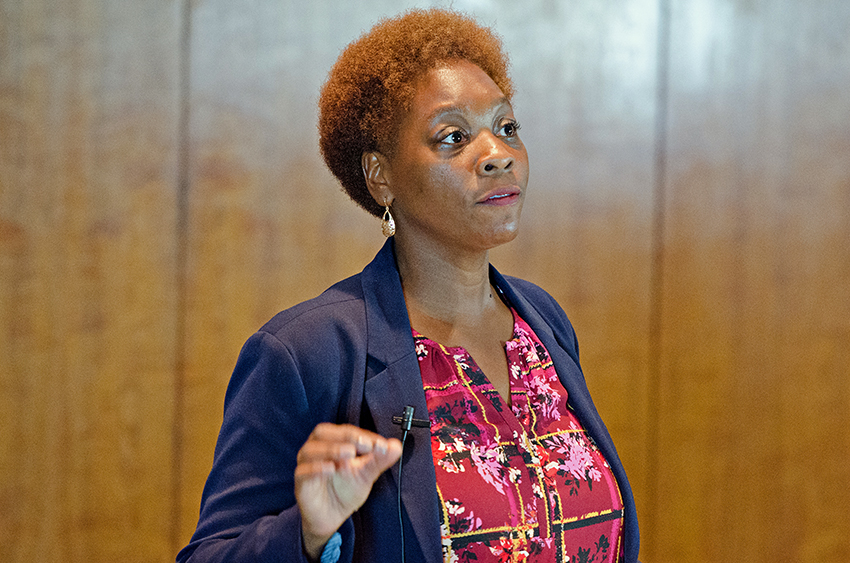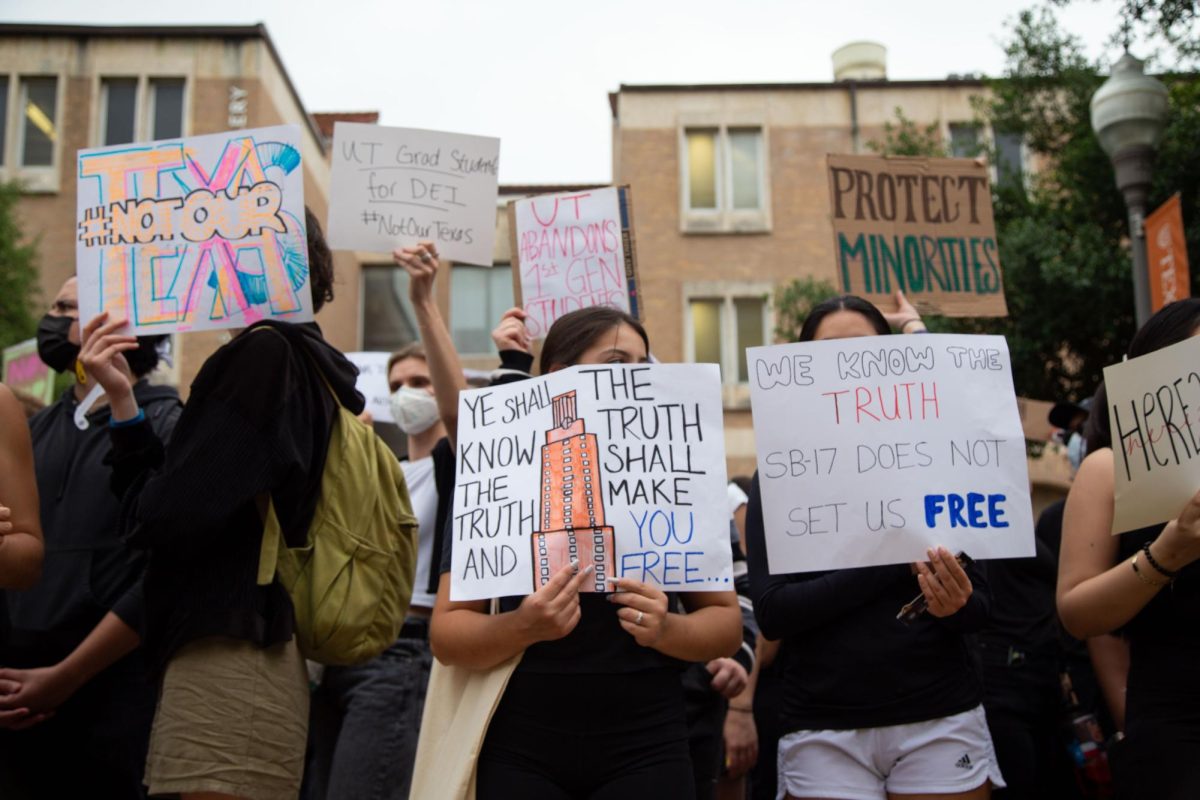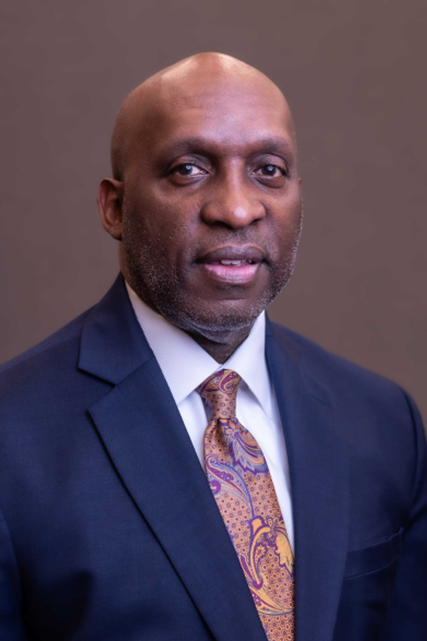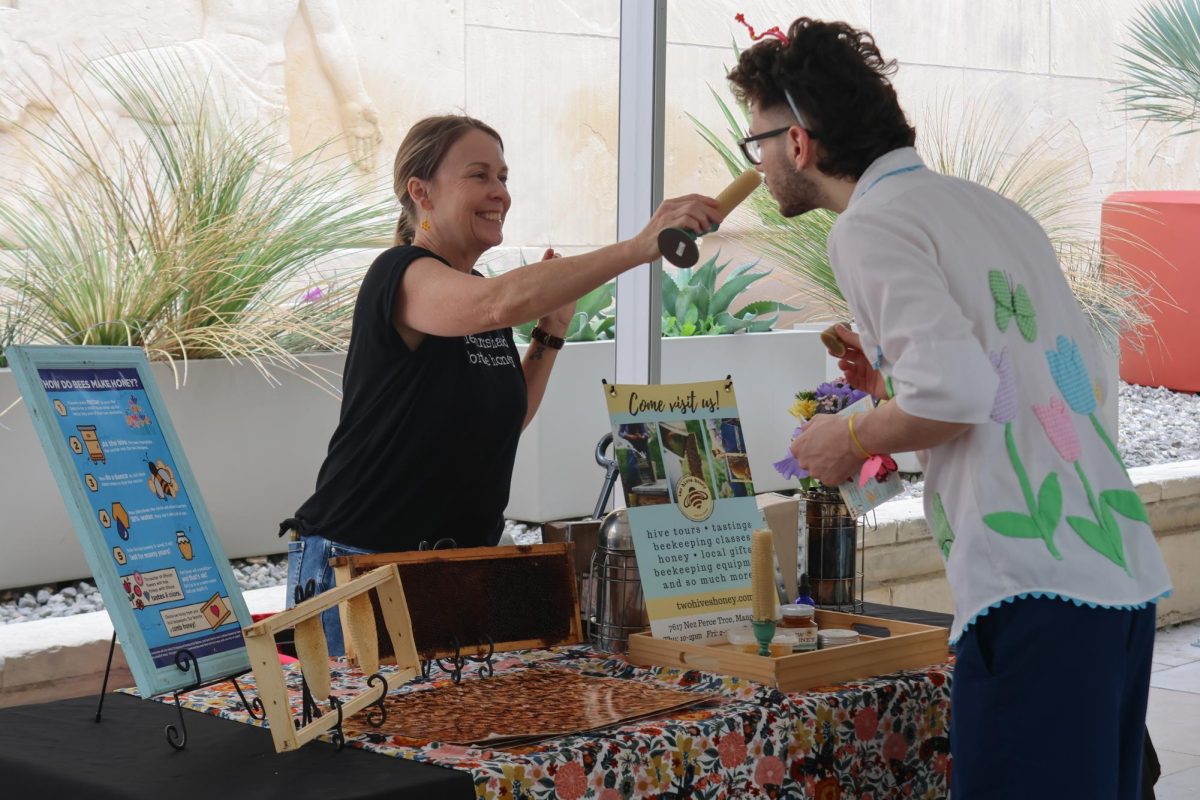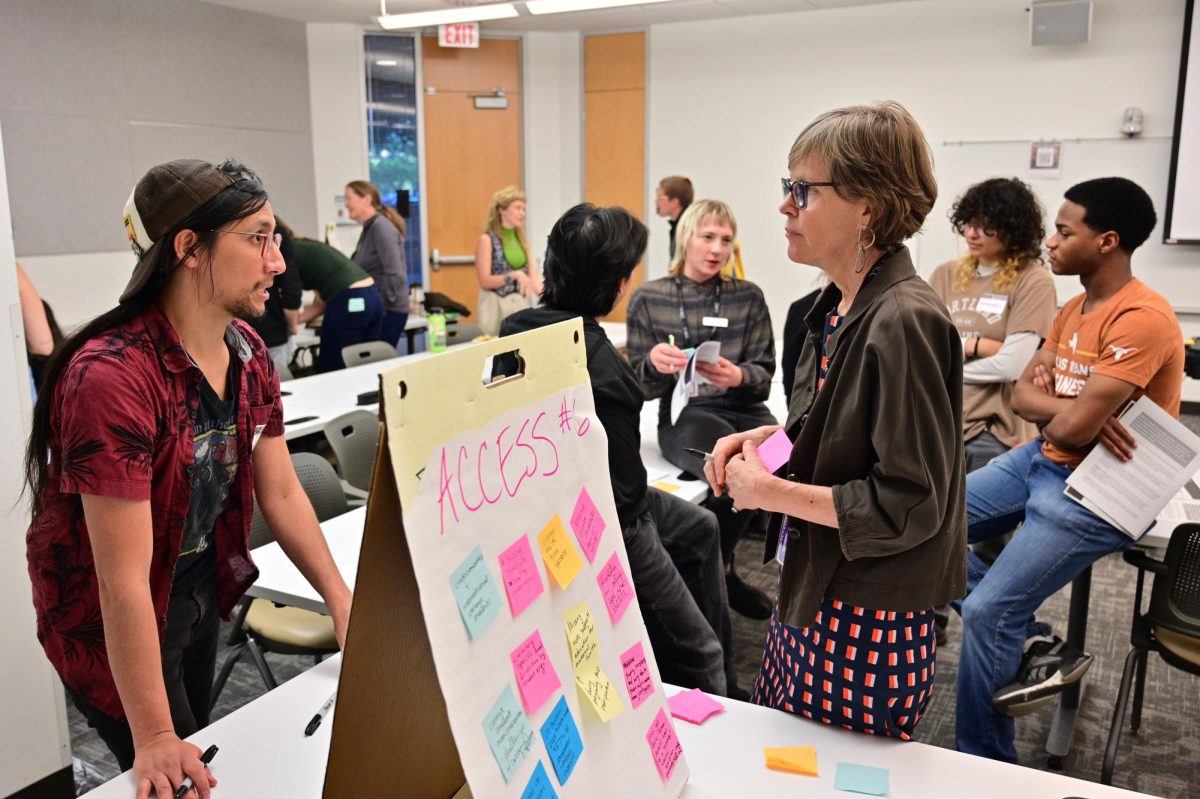Amid a controversial state voter identification law and an upcoming presidential election, Texas was dubbed the “epicenter of voting rights battles” during a panel Sunday at the Lyndon B. Johnson School of Public Affairs.
The event, titled “Voting Rights in Texas and Beyond,” included discussion surrounding a ruling the Federal 5th Circuit Court of Appeals made in July. The court ruled that Texas’ voter ID law, a measure enacted in 2011 by the Texas Legislature, had a discriminatory impact on African-Americans and Latinos in the state and didn’t comply with the Voting
Rights Act.
“I love my state, but we don’t always do the right thing here,” Chad Dunn, the chief litigator for plaintiffs in the 2011 Texas voter ID case, said. “We haven’t for a
long time.”
Dunn said historical methods of voter intimidation have long plagued the Lone Star State, and he considered the process of retrieving a form of identification to be a modern-day poll tax because of the time, money, and “bureaucratic headaches” it takes people.
“There are 680,000 registered voters in Texas who don’t have IDs,” Dunn said. “A lot of them are veterans, your neighbors — we have to be sympathetic and understand their civil rights are just as important as everyone else’s.”
Dunn added that the Texas Department of Public Safety had offices in areas that were sometimes hard to get to for citizens. He noted that residents living in the rural areas between San Antonio, Austin and Houston sometimes had to drive 150 to 200 miles just to reach the nearest office.
Nancy Abudu, the director of legal operations for the American Civil Liberties Union in Florida, described what she called voter-suppression tactics, and pointed to states like North Carolina and Wisconsin as examples that showcased efforts by some to skew the election process.
“We’re in an age where law makers are allowed to choose their voters even though it’s supposed to be the other way around,” Abudu said. “When we talk about suppressing the vote, it’s real.
Abudu said she didn’t think one single solution for increasing voter turnout existed.
“What we’ve been fighting for is multiple options. I’m more in support of promoting multiple avenues for casting a ballot,” Abudu said. “These laws are having discriminatory impacts on communities, but they’re having a universal effect on all of us.”
Cassandra Champion, a staff attorney at the Texas Civil Rights Project, also spoke at the event.
Referring to the National Voter Registration Act, a 1993 federal law that required state governments to allow voter registration opportunities to eligible people renewing or applying for a driver license, Champion said Texas had received more than 1800 complaints by people who had been confused by the process when they tried to update their driver license information online.
Champion added she expected changes to be made to the system in time for the 2018 election.
Champion told The Daily Texan that the Texas Civil Right Project staff plans to educate the public about these issues and make it more accessible for people to exercise their constitutional right to vote.
“I look to leadership and think they should absolutely be trying to bring more people into the [voting] process,” Champion said. “They have no reason to not make as many people eligible to participate in civic engagement as possible.”



